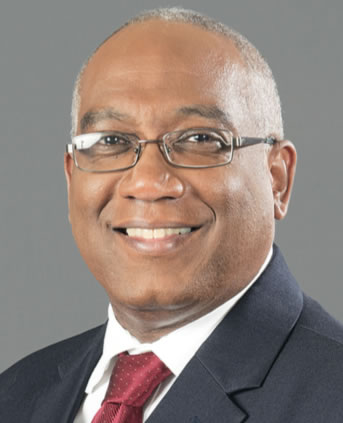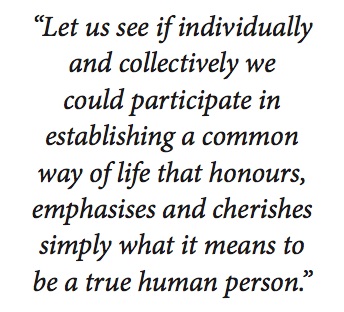Many of us, I hope all of us, have at least one story of a good neighbour. Over the Christmas holiday I heard one such story, recounted by a man who was born to a very young mother. The trauma of his birth left him with a misshapen head. However, there was a nurse in the neighborhood. And dutifully, for months, free of charge, she would come and mold and shape his infant head in her hands. That man is in his 40s now. The nurse has long passed. His head is quite normal. But the experience is so vivid to him that he still shares it with others. By all accounts he is a conscientious citizen, striving to return the gift that was given to him in his infancy.
I recount this story now at the beginning of the new year and the new decade because it has become increasingly clear that as a society we are dealing with struggles that material prosperity alone cannot repair. Towards the end of 2019 I was greatly impressed by the words of Reverend Dr Burchell Taylor, the outstanding Jamaican master of theology and citizen, at the UWI Mona Graduation Ceremony. He spoke forcefully and with moral clarity about the need for a "culture of neighbourliness".

He called for the graduating students to find "a common cause that will make a difference to the common good". He spoke of our region's growing problems of "social disconnectedness", "threatening incivility" and the "cruel inequities that push so many of our people to the walls of a marginal existence". Dr Taylor’s message was powerful and necessary.
Here at UWI St Augustine and the wider University itself, we have placed great emphasis on improving our efficiency and unlocking the business potential within our campuses. I would argue that in this time of near unparalleled economic uncertainty in the Caribbean, productivity and efficiency are moral imperatives. We have the capability to unlock society’s economic potential. Therefore we must do it. We must lead by example. We must be enthusiastic advocates for entrepreneurship.
But there are other moral imperatives. Many of the stories we read in our news media clearly show that our people are suffering from more than a lack of financial resources. In the kinds of wrongdoing we see, in the ugly partisanship and the sometimes inhumane discourse, it is clear that there are emotional and spiritual deficits as well. Money in itself cannot solve these issues.
This is why the humanities are so crucial to our well-being. In the final months of 2019 our Department of Creative and Festival Arts (DCFA) within the Faculty of Humanities and Education hosted several student-led events under their Season of the Arts. Words cannot describe the enrichment, the positive impact on the soul that receiving the gifts of these talented young performers provides. In song, in dance, in dramatic performances and artistic works, I would recommend attending at least one DCFA event to everyone.

Art, ideas and spiritual systems help ground and guide us. They help us think collectively and compassionately. Hopefully they help us recognise our own shortcomings. Hopefully they help us to think past material gain to emotional and spiritual fulfillment. As Dr Taylor so wonderfully put it:
"Let us see if individually and collectively we could participate in establishing a common way of life that honours, emphasises and cherishes simply what it means to be a true human person."
In 2019, UWI St Augustine had incredible successes. Some of them were depicted in an outstanding end of year video that I invite everyone to watch on our UWI St Augustine Facebook page. But these are only some of the numerous achievements of our campus community in the final year of the last decade. I am pleased and proud of every success and impact we have made, whether big or small.
As Campus Principal, I want not only for our students to achieve their professional goals and make their big impacts on society. I want them to live for the small impact as well. I want them to be good neighbours. I want that one day-20, 30, 40 years from now-a single individual can still remember and still recount their neighbourly acts of kindness.
A healthy, peaceful, yet enriching 2020 to all!